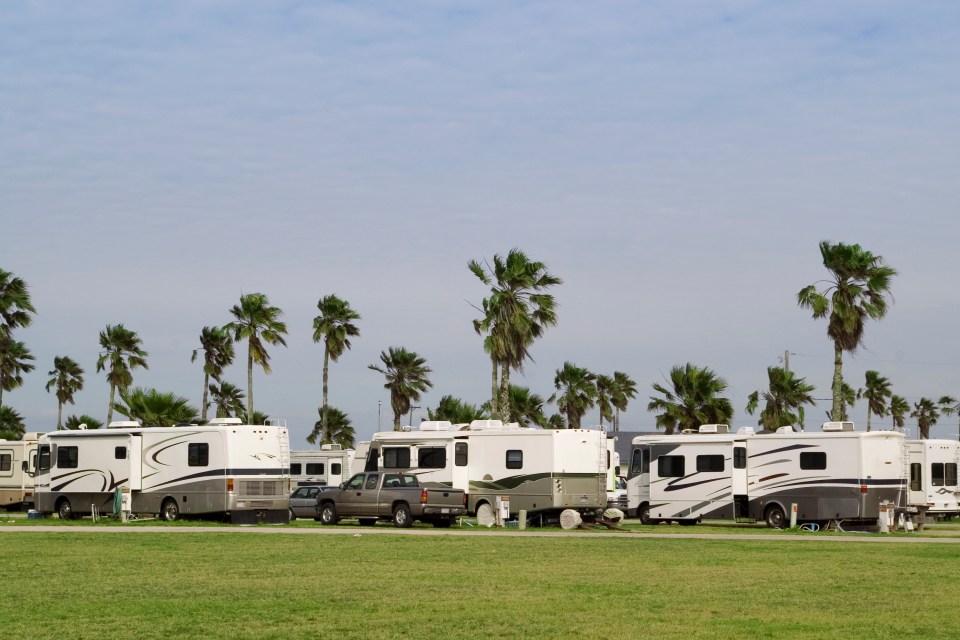New law bans larger vehicles from parking on street with strict 72-hour rule – or risk being towed
The “72-hour rule” and a new law that forbids larger cars from parking on residential streets could result in towing.
Some drivers believe it will disrupt their living arrangements, while officials say they were reacting to homeowners’ worries over nuisance parking.
The Fremont City Council overwhelmingly decided to prohibit RV parking in residential neighborhoods and limit parking for 72 hours.
Any car that has been parked in the same spot for 72 hours is required by the ordinance to be moved at least 1,000 feet away.
According to Raj Salwan, a member of the Fremont City Council, the plan is an attempt to solve the problem of nighttime parking.
“One, we have to enforce this and that’s going to take some time to scale up so we do want to have resources for these individuals whether that’s through a nonprofits, permanent affordable housing, shelters, all of the above and so I’m ready to move this forward,” Salwan stated.
read more motor stories
Some families, however, are troubled by the new rule because it may change their living arrangements.
“Oh, it’s a hard time for them, most of all, you know, because they need their own space,” mother Senae Lopez, who lives indoors with her three teenagers, told ABC7News.
“Mostly for my girl because she’s the only one and the oldest, so it’s kind of hard,” Lopez stated.
“It’s the same thing,” she continued. I work, so I pay taxes just like they do. Thus, I’m not sure.
“They may claim, ‘Oh, they don’t pay rent.'” That’s accurate, but it’s pricey, you know. Food, clothing, and petrol are not the reasons I work here. It’s located in San Jose.
According to the mother, her family has been parking their RV in Irvington Park for about six months.
They’ve been here much longer, though, according to Sheila Mani, a local who lives in a house a few feet away.
Mani stated, “A year and a half,”
Mani and locals attempted to persuade the city’s authorities to do something.
She stated: “It’s gotten to a point that the indifference has not only been frustrating, we’ve reached a point of no hope.”
What to do if your car is towed
Whether done correctly or not, getting a towed car back can be difficult.
There are a few procedures to follow if your car is towed after you parked in a “No Parking” area or for any other justifiable reason.
What to do if your automobile is being towed:
- Try to figure out why your car was towed. Did you not see a posted “No Parking” sign? Did you miss a car payment? Did you return to a lot where you have unpaid citations? Finding the reason can narrow down the phone numbers to dial.
- Locate the vehicle. Most states, cities, or counties require towing companies to leave some form of contact information via a posted sign or sent by mail.
- Recovery dates and times depend on the company that towed the vehicle, but those times will be posted to the website or can be recited by a representative.
- Pay the fees. Be careful to be as prompt as possible, as some tow yards may charge storage fees by the day.
You can challenge the action by taking the following actions if you believe your car was wrongfully towed:
- Be prompt – many states have a small window of time where it’s acceptable to file a complaint against a company that wrongfully towed the vehicle.
- Gather supporting documents: photos, emails, receipts, police reports, and witness statements if applicable. The more evidence, the better.
- Get familiar with your local laws, as laws for towing companies vary per state.
- Try speaking with the towing company. Sometimes it may have been a simple oversight, and the matter can be resolved quickly.
- Contact the Justice of the Peace in your area, as they may have more insight or resources to help. They are often utilized for towing cases.
- Talk to a lawyer. Many lawyers have free case consultations, and depending on the case, it may be worth it to utilize a lawyer.
Source: National General, Oregon Department of Justice, and Rak Law Firm
Note: Thank you for visiting our website! We strive to keep you informed with the latest updates based on expected timelines, although please note that we are not affiliated with any official bodies. Our team is committed to ensuring accuracy and transparency in our reporting, verifying all information before publication. We aim to bring you reliable news, and if you have any questions or concerns about our content, feel free to reach out to us via email. We appreciate your trust and support!













